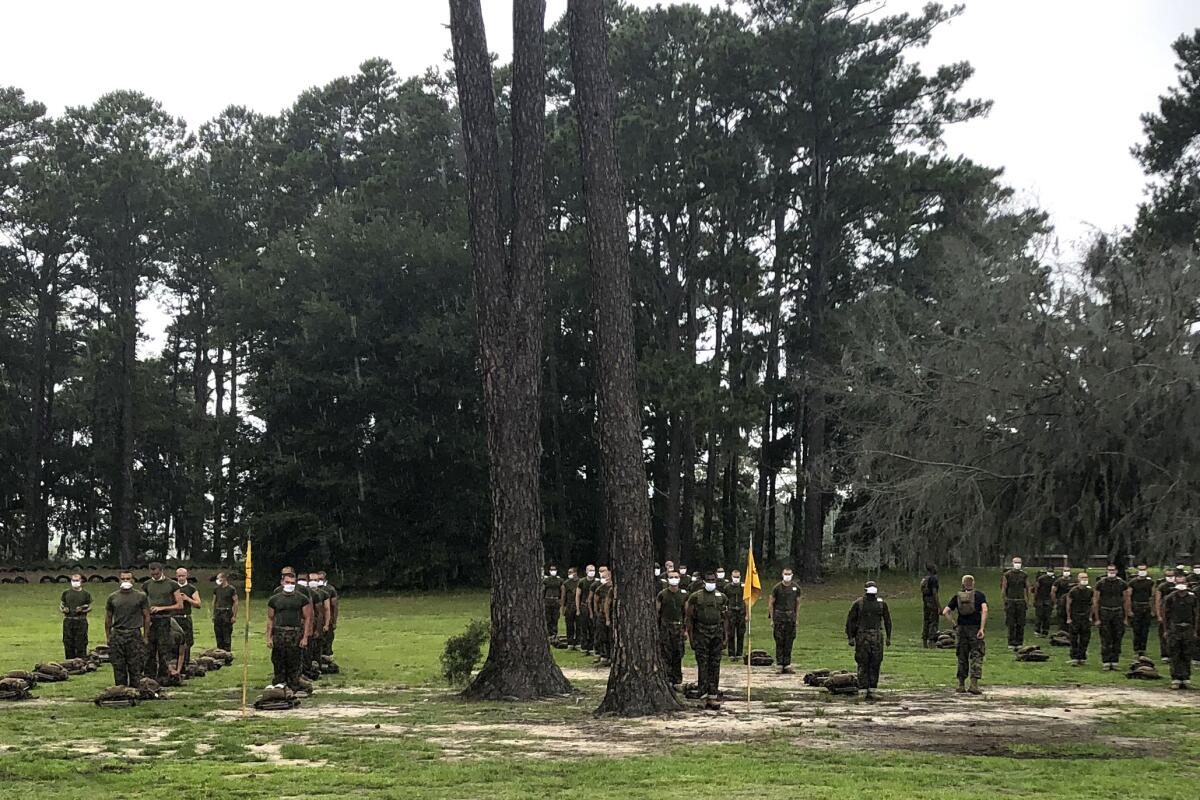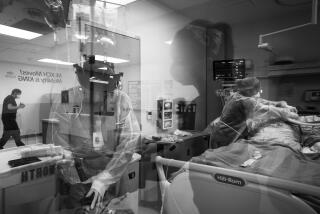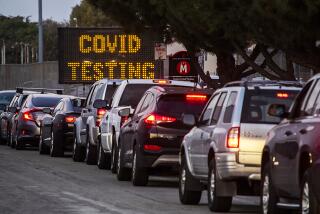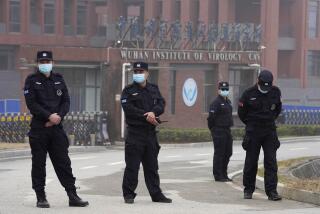Screening for fever and other COVID-19 symptoms misses many cases, study finds

- Share via
Temperature and other COVID-19 symptom checks like those used at schools and doctors’ offices have again proved inadequate for spotting coronavirus infections and preventing outbreaks.
A study of Marine recruits found that despite these measures and strict quarantines before they started training, the recruits spread the virus to others even though hardly any of them had symptoms. None of the infections were caught through symptom screening.
The study, published Wednesday in the New England Journal of Medicine, has implications for colleges, prisons, meatpacking plants and other places that rely on this sort of screening to detect infections and prevent outbreaks.
“We spent a lot of time putting measures like that in place, and they’re probably not worth the time as we had hoped,” said Jodie Guest, a public health researcher at Atlanta’s Emory University who had no role in the research.
“Routine testing seems to be better in this age group” because younger adults often have no symptoms, she said.
The study was led by researchers from the Icahn School of Medicine at Mount Sinai in New York and the Naval Medical Research Center.
It involved 1,848 Marine recruits, about 90% of them men, who were told to isolate themselves for two weeks at home. That was followed by a supervised military quarantine for two more weeks at a closed college campus — the Citadel in Charleston, S.C. — where the recruits had a single roommate, wore masks, kept at least six feet apart and conducted most of their training outdoors. They also had daily fever and symptom checks.
A winter surge of COVID-19 is now unavoidable, experts say, though its magnitude depends on what we do next. Hundreds of thousands of lives hang in the balance.
The recruits were tested for the coronavirus when they arrived for the military quarantine, and tested again seven and 14 days afterward. Sixteen, or about 1%, tested positive on arrival and only one had any symptoms. An additional 35 — or 2% — tested positive during the two-week military quarantine, and only four had symptoms.
Only recruits who tested negative at the end of both quarantine periods were allowed to go on to Parris Island for basic training.
Genetic testing revealed six separate clusters of cases among the recruits.
“A lot of the infection that occurs, we don’t even realize it is occurring,” said one study leader, Navy Cmdr. Andrew Letizia, a doctor at the Naval Medical Research Center.
The quarantine measures and adherence to them were far more strict than what would occur at a typical college campus, said another study leader, Dr. Stuart Sealfon of Mount Sinai.
“This is a really infectious virus. You really need to use a combination of good public health measures, temperature checks, mask wearing, social distancing, hand washing ... and comprehensive testing” to prevent spread, he said.
Can you have Thanksgiving during the COVID-19 pandemic? Researchers have created an interactive map that estimates the risk you’ll face in any county.
Previously, federal officials said a screening project to check temperatures and symptoms at U.S. airports caught fewer than 15 cases out of 675,000 travelers. It’s not known how many cases were missed, just that very few were detected.
A separate study published Wednesday in the New England Journal described an outbreak last spring on the aircraft carrier Theodore Roosevelt. Among the crew of 4,779, 1,271 became infected; 77% did not show COVID-19 symptoms when their infections were confirmed, and 55% never developed any.
The case shows that “young, healthy persons can contribute to community spread of infection, often silently,” Dr. Nelson Michael of the Walter Reed Army Institute of Research wrote in a commentary.







